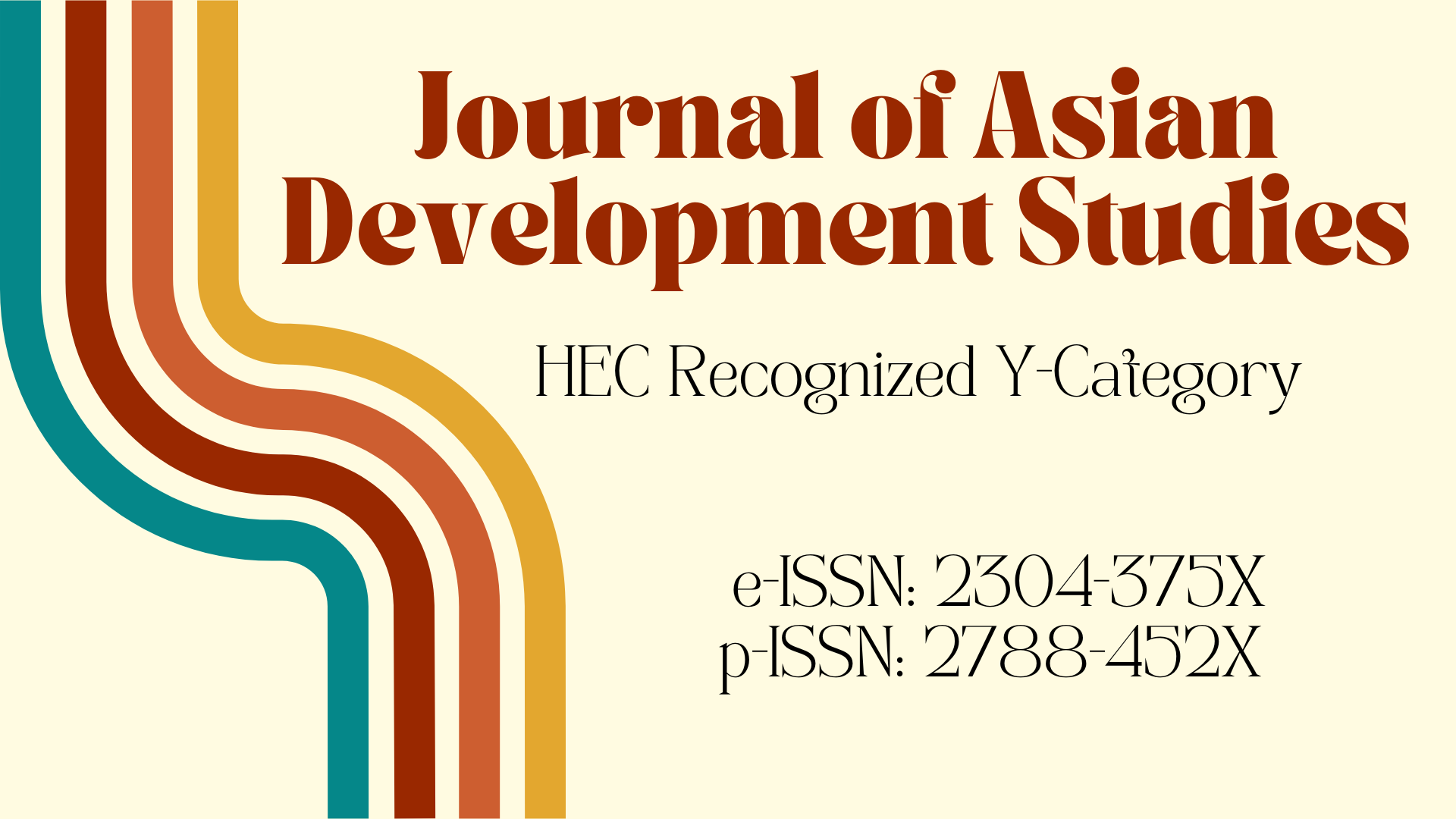Vicious Triangle of Transitional, Security, Uncertainty and Poverty
DOI:
https://doi.org/10.62345/jads.2025.14.1.25Keywords:
Terrorism, Poverty, Uncertainty, Investment, Economic GrowthAbstract
This study explores the interconnected relationship between terrorism, insecurity, and poverty in Pakistan, forming a vicious triangle that undermines economic growth and social stability. Using data from 1980 to 2010, the study demonstrates how terrorism leads to heightened uncertainty, significantly reducing foreign and domestic investments. This decline in investment, in turn, exacerbates unemployment, aggravates poverty, and fosters conditions conducive to further terrorist activities. The research highlights the negative impact of terrorism on Gross Capital Formation (GCF) and Foreign Direct Investment (FDI), revealing their inverse relationship with poverty levels. Furthermore, the study applies Granger Causality and Johansen Co-integration tests, which confirm the existence of long-run relationships between terrorism, investment, and poverty. The findings suggest that terrorism both contributes to and is exacerbated by poverty, creating a self-reinforcing cycle that hinders economic development. To break this cycle, the study recommends targeted policy measures, including job creation in terrorism-prone areas, educational improvements, and strategies to enhance Pakistan's international image to attract investment. The study underscores the need for a comprehensive approach that addresses both the immediate and structural causes of terrorism, uncertainty, and poverty to foster long-term economic stability in Pakistan.
Downloads
Downloads
Published
Issue
Section
License

This work is licensed under a Creative Commons Attribution 4.0 International License.
License Terms
All articles published by Centre for Research on Poverty and Attitude are made immediately available worldwide under an open access license. This means:
- everyone has free and unlimited access to the full-text of all articles published in Centre for Research on Poverty and Attitude's journals;
- everyone is free to re-use the published material if proper accreditation/citation of the original publication is given.




